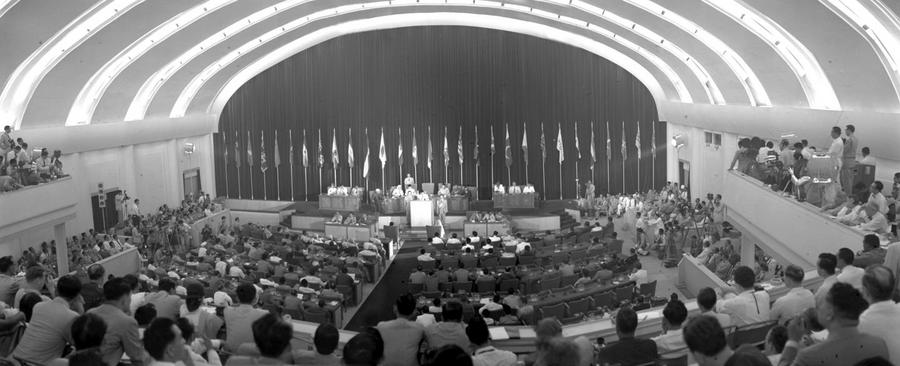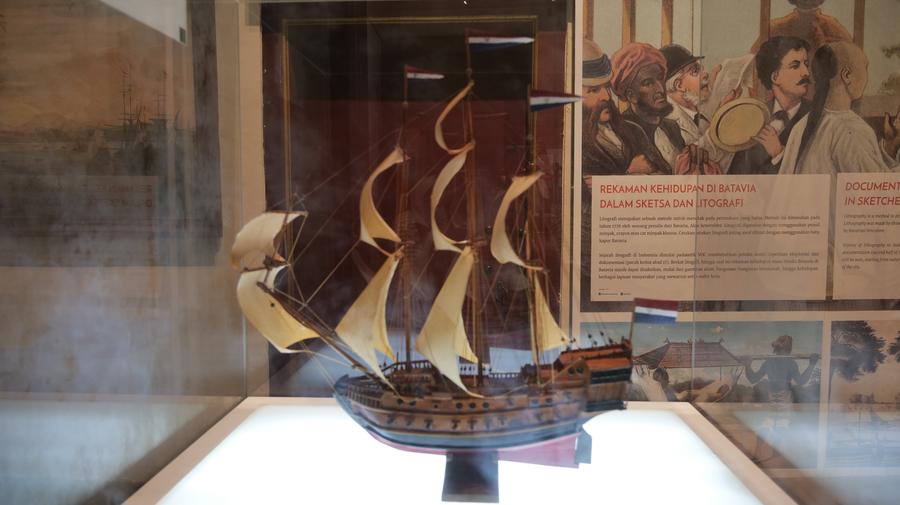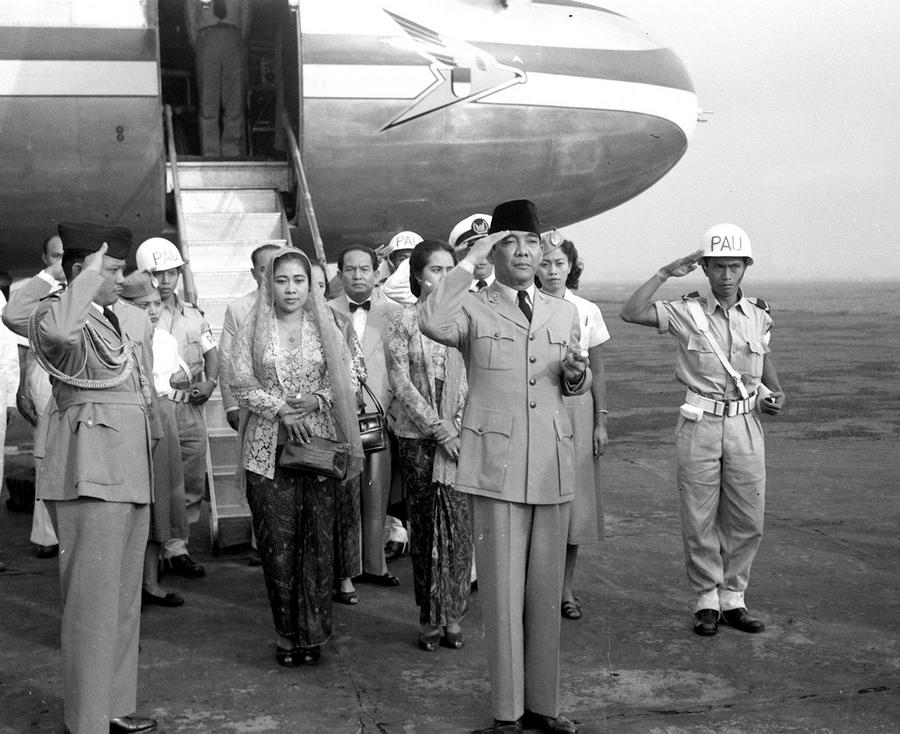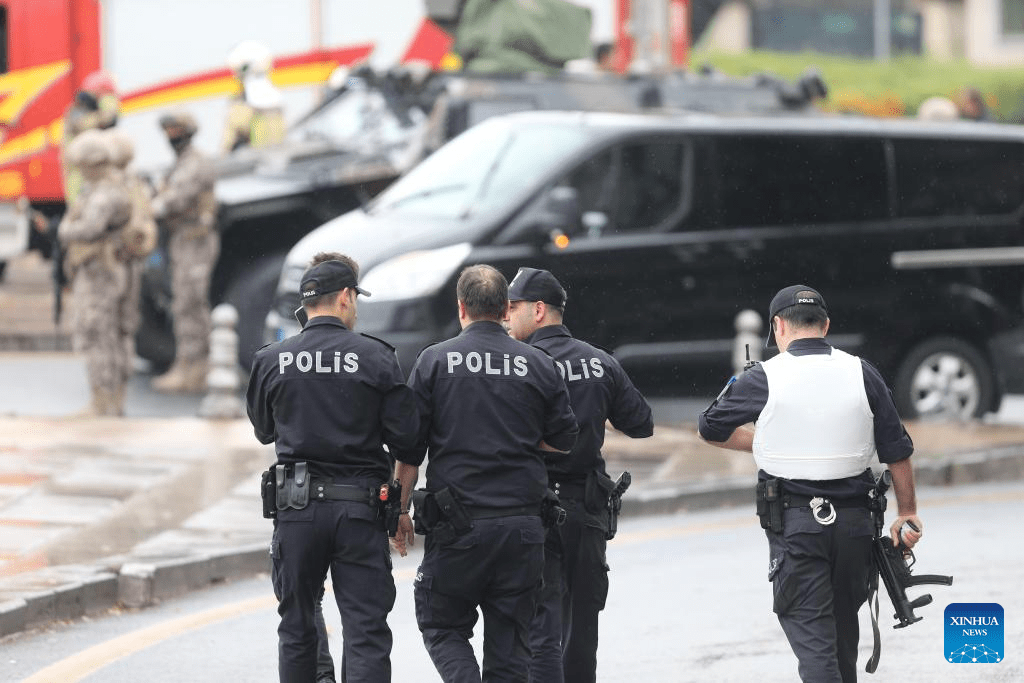Feature: 69 years on, the Bandung Spirit remains alive in the Global South
► Today, almost seven decades after the historic Asian-African Conference, the Bandung Spirit carries on, inspiring countries in the Global South to embark on a new path of common development through win-win cooperation under the framework of the Belt and Road Initiative and other platforms.

« Few cities in history have won so many hearts and minds as Bandung, » the late Honorary President of the People’s Republic of China, Soong Ching Ling, commented on the Indonesian city.
The historic Asian-African Conference, also known as the Bandung Conference, was held in the city on April 18, 1955. It marked the first time that the countries of the Global South united to oppose imperialism and colonialism in defense of their sovereign rights and a more equitable world.
Leaders and representatives of 29 Asian and African countries, which had just won independence after decades of being ruthlessly deprived by Western colonists, proposed the Bandung Spirit with « solidarity, friendship and cooperation » at the core, initiating the Non-Aligned Movement and South-South cooperation.
Today, almost seven decades after the conference, the Bandung Spirit carries on, inspiring countries in the Global South to embark on a new path of common development through win-win cooperation under the framework of the Belt and Road Initiative and other platforms.
BIRTH OF NEW ASIA, NEW AFRICA
Situated 768 meters above sea level, Bandung has cooler year-round temperatures than most other Indonesian cities. During the Dutch colonial period, it was known as the « Paris of Java. »
In 1809, to improve Java Island’s defense system and facilitate the transportation of soldiers and supplies, Herman Willem Daendels, the Governor-General of the Dutch East Indies, ordered the construction of a road stretching about 1,000 km across Java Island from west to east, which would later be renamed Asia-Africa Street.
At the opening ceremony of the Asian-African Conference, in a three-story milky white building on the side of the street, Sukarno, Indonesia’s first president, appealed for awakening on behalf of the Southern countries.
« This is the first intercontinental conference of people of color in human history, » noted Sukarno in his speech.
« Wherever, whenever and however it appears, colonialism is an evil thing, and one must be eradicated from the earth, » he said.
« I hope that it will give evidence of the fact that we Asian and African leaders understand that Asia and Africa can prosper only when they are united, and that even the safety of the world at large cannot be safeguarded without a united Asia-Africa, » he added. « I hope that this conference will give guidance to mankind, will point out to mankind the way which it must take to attain safety and peace. I hope that it will give evidence that Asia and Africa have been reborn, nay, that a New Asia and a New Africa have been born. »
Then Chinese Premier Zhou Enlai, who led a Chinese delegation to attend the conference, proposed the Five Principles of Peaceful Co-existence. These principles became a crucial component of the Bandung Spirit and were later accepted by the vast majority of countries worldwide as the basic norms of international relations and the basic principles of international law.
« The Bandung Conference in 1955 can be seen as a symbolic moment. At this time, the non-Western world loudly said that it must be taken seriously in world politics, » wrote American historian Immanuel Wallerstein.

« TREACHERY, BRIBERY, MASSACRE, MEANNESS »
Colonialism was the starting point of the primitive accumulation of capital in the West. European colonists who believed in white supremacy and the law of the jungle invaded Africa, the Americas and Asia, where they slaughtered and plundered wildly, causing waves of bloodshed.
In 1619, the Netherlands seized Jayakarta, the trading center on Java Island, and renamed it Batavia, which is today’s Jakarta. The Dutch took Batavia as the headquarters of the Dutch East India Company (VOC) in the East and used it as a stronghold to colonize Indonesia. By the middle of the 17th century, the VOC’s trade volume accounted for nearly half of the total global trade at that time.
« The history of the colonial administration of Holland is one of the most extraordinary relations of treachery, bribery, massacre, and meanness … Wherever they set foot, devastation and depopulation followed. Banjuwangi, a province of Java, in 1750 numbered over 80,000 inhabitants, in 1811 only 18,000, » wrote Karl Marx in his book « Capital. »
In its nearly 200-year history, the VOC was involved in about 800 armed conflicts, large and small.
Jan Pieterszoon Coen, who twice served as Governor-General of the VOC during its early years, was known for his ruthlessness. In 1621, in order to monopolize the nutmeg trade, he ordered the massacre of most of the 15,000 residents of the Banda Islands. He was then known as the « Butcher of Banda » by the locals.
In 1830, the Dutch colonial authorities introduced the « Cultivation System, » requiring locals to use 20 percent of their land to cultivate export cash crops such as indigo, coffee, and sugar. The colonial authorities expropriated so much land that the locals had almost no land to grow food crops, leading to mass starvation.
« The Dutch colonial rulers who took over these islands, like the Dutch East India Company in the past, were only interested in making money and did not care about the lives of the local people, » wrote British writer Elizabeth Pisani in her book « Indonesia, Etc.: Exploring the Improbable Nation. »
« They cut down the jungles of Sumatra to plant rubber trees and cocoa trees. They eradicated jungles in Java, Sulawesi and other islands to obtain coffee, tea, sugar and tobacco. They vigorously developed land to dig tin mines, gold mines and oil. For a period, the Dutch drew half of its national income from Indonesia. »
During its over 300 years of colonial rule, the Dutch always played the role of predators and pursued a barbaric approach of killing the goose that lays the golden eggs. This has led to the abnormal development of the Indonesian economy and has completely reduced it to a raw material supplier for the Dutch.
BAMBOO SPEARS
The West Java People’s Struggle Monument is erected in northern Bandung. The monument’s 17 basalt steps, 45-meter-diameter platform and eight towering bamboo-shaped stone pillars were specially designed to commemorate the day of Indonesia’s independence, Aug. 17, 1945.
Mohamed Rikrik, a narrator of the monument, said that in the Sundanese culture of West Java, bamboo represents freedom. The stone pillars were built in the shape of a bamboo spear because bamboo spears were the primary weapon used by the Indonesian people to fight against the colonists.
In the first half of the 20th century, the oppressed people of Asia gradually awakened, and the Indonesians’ calls for independence became increasingly louder.
In 1908, a native nationalist political society named Budi Utomo was formed. In 1912, the first political party, the Islamic Association, was established.
« A significant development is the spread of the revolutionary democratic movement to the Dutch East Indies, to Java and the other Dutch colonies, with a population of some 40 million … the age-old despotism and tyranny of the Dutch Government now meet with resolute resistance and protest from the masses of the native population, » Vladimir Lenin wrote in his article « The Awakening of Asia » in 1913.

ROOSTER CROWS BECAUSE SUN RISES
Built in 1907, the Indonesia Indictment Museum in Bandung was first used by the Dutch colonial authorities to try anti-Dutch people.
« This is where Sukarno stood for trial. In the two-day trial, Sukarno successfully defended himself, » said Dede Ahmad, the museum’s narrator.
In 1927, Sukarno and others formed the Indonesian National Association, later renamed the Indonesian National Party, to strive for national independence. Two years later, the Dutch colonial authorities arrested Sukarno on charges of « launching a rebellion. »
During the trial, Sukarno delivered a lengthy defense speech entitled « Indonesia Accuses, » enumerating the crimes of the Dutch colonists and advocating the Indonesian people’s just struggle for national independence.
« In fact, the sun does not rise because the rooster crows, but the rooster crows because the sun rises! The truth is, in Indonesia as well, the national movement was born out of imperialism, which was idolized by the ruling class, and not least from the economic drainage system that has been operating in the country for centuries. Imperialism is a principal instigator and a principal criminal who incites rebellion, therefore bring imperialism to justice! » Sukarno said in his defense speech.
Sukarno’s voice of justice aroused enthusiastic responses from the Indonesians and panic from the Dutch colonists. He was sentenced to four years in jail and sent to Bandung prison.
Sukarno became Indonesia’s first president after independence in 1945 and successfully led the Indonesian people to defeat the Dutch colonialists’ attempt to recolonize Indonesia through war.
He asserted that colonialists would not be willing to accept defeat in Asia and Africa, and newly founded countries must unite to oppose colonialism and imperialism.
In 1955, the Asian-African Conference initiated by Sukarno and others was successfully held on Asia-Africa Street, only 1 km away from the trial site where « Indonesia Accuses » was delivered. This conference symbolized the awakening and unity of the people of Asia and Africa.
MUTUAL DEVELOPMENT
« We have all witnessed the injustice of the current world economic order. We must reject trade discrimination. Downstream industrial development must not be hindered. We must continue to speak out for equal and inclusive cooperation, » said Indonesian President Joko Widodo.
In late August 2023, at the BRICS leaders’ meeting in Johannesburg South Africa, Widodo called on countries in the Global South to unite, safeguard their rights to development, and oppose actions that hinder progress.
Bandung’s Tegalluar railway station was inaugurated on Sept. 7 last year. It is one of the four stations in the Jakarta-Bandung High-Speed Railway, a landmark project under the Belt and Road Initiative jointly built by Indonesia and China.
The high-speed rail has shortened the travel time between Jakarta and Bandung from over three hours to 40 minutes, bolstering economic activities and job opportunities.
« I am very happy, and the Indonesian people are also very happy because our high-speed railway is the only one in Southeast Asia. With this infrastructure, we can lay the foundation for progress. The most important thing is, it will also enhance Indonesia’s national competitiveness, » Widodo said before the commercial operation of the railway.
Bambang Suryono, president of the Jakarta-based think tank Nanyang ASEAN Foundation, said that Western countries have achieved their modernization through enslaving and exploiting other countries, devastating the people of those countries.
« Through solidarity and cooperation with China, Indonesia participates in the joint construction of the Belt and Road Initiative and achieves mutual development. This proves that countries in the Global South can embark on a new development path, » he added.
HAND IN HAND, SHOULDER TO SHOULDER
On April 22, 2015, Chinese President Xi Jinping delivered a speech entitled « Carry Forward the Bandung Spirit for Win-win Cooperation » at the Asian-African Summit held in Indonesia.
« Sixty years ago, leaders from 29 Asian and African countries attended the Bandung Conference, giving birth to the Bandung Spirit of solidarity, friendship and cooperation, galvanizing the national liberation movement that swept across Asia, Africa and Latin America, and accelerating the global process of decolonization, » Xi said in his speech.
« The Bandung Spirit under the new circumstances retains strong vitality. We must carry forward the Bandung Spirit by enriching it with new elements consistent with changing times, by pushing for a new type of international relations featuring win-win cooperation, by promoting a more just and equitable international order and system, » and by building a community with a shared future for humanity so as to bring about even greater benefits to the people in Asia, Africa and other parts of the world, he said.
In Bandung today, the Jakarta-Bandung High-Speed Railway trains speed by, embodying the Bandung Spirit of « solidarity, friendship, and cooperation » in the new era.
Indonesian musician Andy Qiu wrote a song, « Move Forward to Realize Your Dreams, » for the railway. As the lyrics go, « Hand in hand, shoulder to shoulder, as long as we are united, nothing is impossible. » ■
by Xinhua




